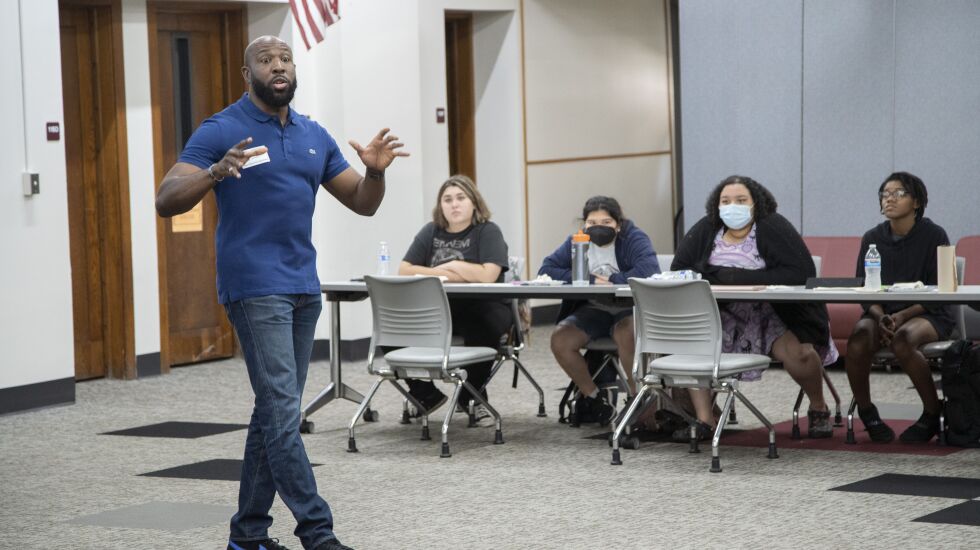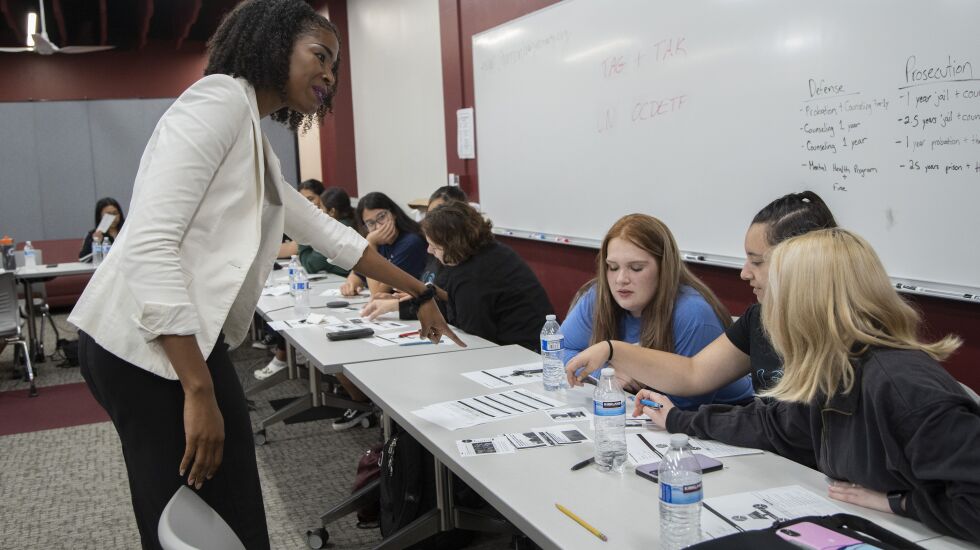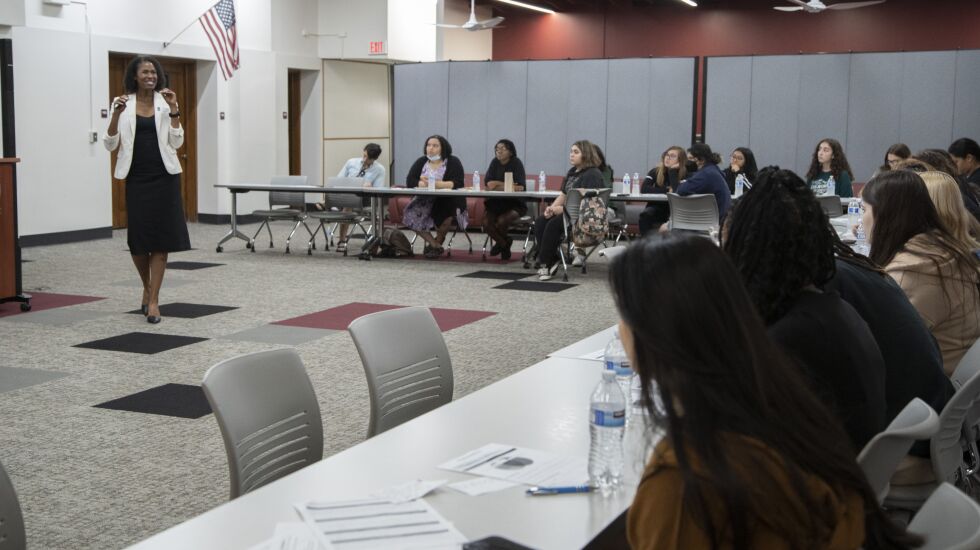
Tanzania Heard and Emily Baase review a set of headlines printed on slips of paper. The 17-year-olds task: Determining which are real.
The two are among 30 girls, all students at Argo Community High School in Summit, attending a program on national security skills that has designs on recruiting more women into the field.
“Is kale about to have an identity crisis?” Tanzania asks, as she reads one headline, purportedly from National Public Radio.
The article mentions how crops can be bred to emphasize or change certain characteristics.
Baase nods.
“We basically invented bananas,” she said, referring to the domestication of that fruit.
She places it in the ‘True’ pile with aplomb.
It was the final day of the four-day program last week, featuring speakers from various government agencies. This exercise focused on misinformation; other topics included artificial intelligence and cybersecurity.
Seventy girls applied for the 30 spots in the program; those selected were paid a $250 stipend to attend.
The program was organized by Girl Security, a nonprofit dedicated to introducing girls to potential careers in the national security field.
Founder Lauren Bean Buitta said it is vital that girls, as well as non-binary youth, get involved so that in matters where lives are at stake, all members of society are represented in order to reach the best decision.
The 42-year-old former national security policy analyst started Girl Security in 2016 because she wanted to help the next generation of analysts overcome the hurdles she had faced, including sexual discrimination, in a field dominated by men.
Buitta grew up in Worth and chose the Summit high school for the program because her sister, who’s also on the Girl Security board, is a school social worker at the school.

Student Justine Madgett said working in national security had never crossed her mind until attending the program last year.
Organizers say the 2021 program was “watered down,” with most lectures on Zoom, but it piqued Madgett’s interest enough to return — this time, bringing her twin sister, Jada.
At one point, students broke into teams for a cybersecurity exercise. The scenario: the United States is the target of ransomware attack. Teams had to determine the source of the attack and decide whether to pay the ransom.
Justine and crew’s hypothesis? It wasn’t the Russians, but a terrorist group framing the Russians.
Whoops.
“We were completely wrong,” Justine said, laughing. Turns out, it was the Russians.
“You really have to think outside the box but it was so fun coming to that conclusion all together. It was like piecing a puzzle together.”
Jada was in a different group. They correctly guessed it was the Russians, though they overestimated the gravity of the attack.
The girls also heard from FBI agent Jeff Fields, who talked about growing up in New York, then spending a decade in Europe, Africa and the Middle East.
For Justine, who grew up in Summit, it was “mind blowing” to think of such faraway places.
Fields is Black and, like Buitta, emphasized to the girls how important it is to have diverse voices in the field.
“Whatever it is that makes you unique is your superpower,” he told the girls.
Baase, whose mother is Black, asked him if the agent ever had paid a price for voicing that belief on the job.
He said he had, but that he, Girl Security and others in the field were working to change that.
“Don’t be afraid to rely on your networks. You got a great one right here,” he said, looking at both the students and the people from Girl Security.
Finishing the disinformation exercise at the end of the day, Georgetown lecturer and former FBI analyst Jorhena Thomas told the class to “get ready to be shocked.” She’s leading the group through a conspiracy theory quiz and pauses for effect before revealing which claim is true.
By now, the group has separated plenty of bonafide wheat from the disinformation chaff — for instance, realizing a story listed on Snopes.com, a fact-checking site, about Ohio replacing lethal injection with “head-ripping” machines was fake.
“By what means is that more humane?” senior Jen DeBlecourt asked coolly.
But nearly all missed this one: The U.S. government did, in fact, secretly dose Americans with LSD in an attempt to develop mind control technology.
As the girls looked at one another in shock, Thomas smiled.
“Happy critical thinking,” she said.
Michael Loria is a staff reporter at the Chicago Sun-Times via Report for America, a not-for-profit journalism program that aims to bolster the paper’s coverage of communities on the South and West sides.








